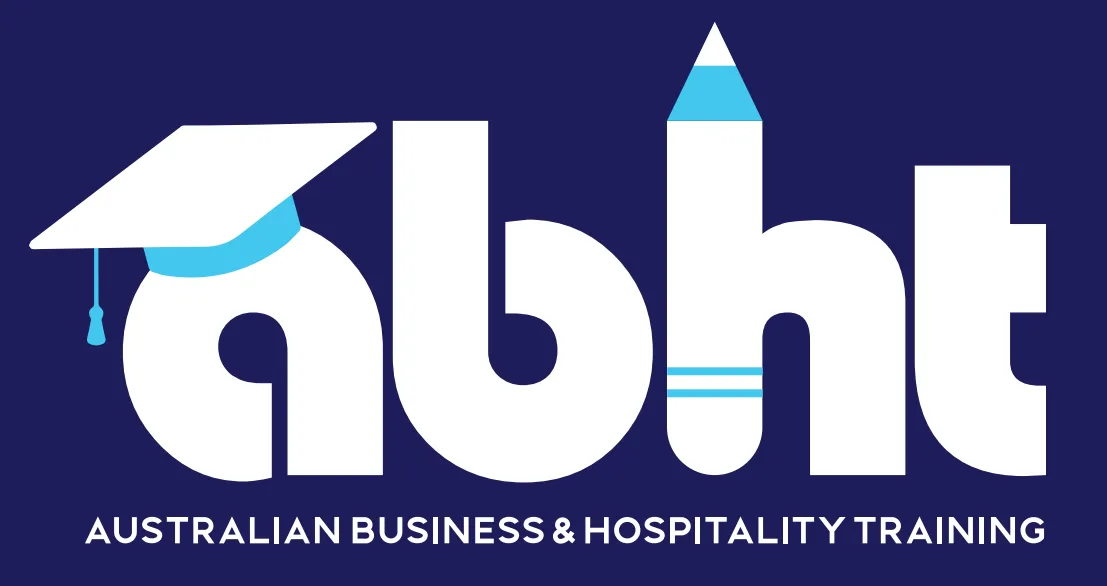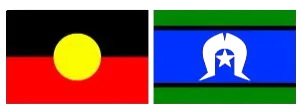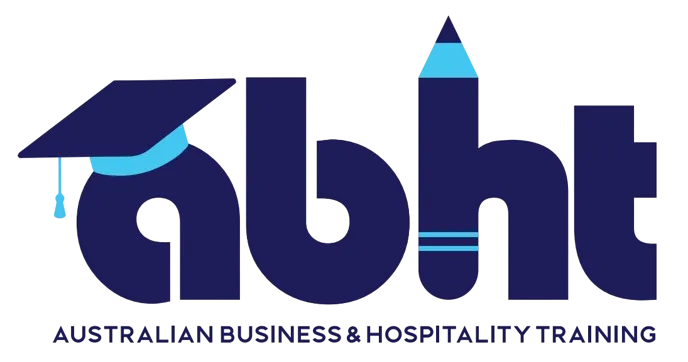BSB50322 - Diploma of Events Management
Course Description
Dive into the exciting world of event management with our Diploma of Event Management! This dynamic program equips you with the skills to design, plan, and execute a variety of events, from corporate conferences to music festivals. You'll learn about event logistics, marketing strategies, and team leadership, all while building a network of industry connections. Whether you're passionate about crafting intimate gatherings or large-scale productions, this diploma offers the knowledge and hands-on experience to turn your vision into reality. Join us and transform your creativity into a profession that brings people together and creates lasting memories.
What will you study?
In the Diploma of Event Management, you'll complete 20 units covering event planning, marketing, budgeting, and on-site operations, equipping you to create memorable experiences across various industries.

Course Enrolment:
Anytime

Entry Requirements:
Nil

Course Duration:
12mths

Location:
ABHT are approved to deliver this course nationally via our online platform and can deliver this training face to face in the workplace throughout Metro & SE QLD.

Study Options:
Training can be delivered face to face in the workplace or in a traditional classroom environment. Students can also study within their own schedule using our online platform or combination of face-to-face and online training.
Diploma of Event Management Training Plan
Core Units
SITEEVT020 Source and use information on the events industry
This unit describes the performance outcomes, skills and knowledge required to access and interpret current and emerging information on the events industry to enhance the quality of event coordination. This includes industry structure, technology, laws and ethical issues specifically relevant to event coordination.
This unit is relevant to events that are diverse in nature and are coordinated in many industry contexts, including the tourism, hospitality, sport, cultural and community sectors.
It applies to individuals working at different levels in event management companies, in event venues, or in organisations that organise their own events.
SITEEVT026 Manage event production components
This unit describes the performance outcomes, skills and knowledge required to analyse event production requirements and organise and monitor different production services and products. It requires the ability to use advanced planning, organisation and communication skills combined with detailed knowledge of the event management process and broad understanding of specialist component services.
This unit is relevant to events that are diverse in nature and are coordinated in many industry contexts, including the tourism, hospitality, sport, cultural and community sectors.
It applies to workers who are responsible for making a range of operational decisions. They may work in event management companies, in event venues, or in organisations that organise their own events.
SITEEVT028 Manage on-site event operations
This unit describes the performance outcomes, skills and knowledge required to manage on-site operational activities for the production of events. It requires the ability to finalise operational plans, oversee event set-up, execution and break-down, and evaluate the operational success of events.
This unit is relevant to events that are diverse in nature and are coordinated in many industry contexts, including the tourism, hospitality, sport, cultural and community sectors.
It applies to event coordinators and managers as well as venue duty, front of house and operations managers who operate independently, and are responsible for operational decisions. They may work in event management companies, in event venues, or in organisations that organise their own events.
SITXCCS015 Enhance customer service experiences
This unit describes the performance outcomes, skills and knowledge required to provide professional and personalised customer service experiences. It requires the ability to determine and meet customer preferences, develop customer relationships, respond to difficult service situations and take responsibility for resolving complaints.
The unit applies to those who deal directly with customers on a daily basis and who operate independently or with limited guidance from others. It includes senior frontline sales personnel, supervisors and managers who use discretion and judgement to provide quality customer service experiences.
This includes individuals working in a range of tourism, travel, hospitality and events contexts.
SITXFIN009 Manage finances within a budget
This unit describes the performance outcomes, skills and knowledge required to take responsibility for budget management where others may have developed the budget. It requires the ability to interpret budgetary requirements, allocate resources, monitor actual income and expenditure, and report on budgetary deviations.
The skills and knowledge for budget development are covered in SITXFIN010 Prepare and monitor budgets.
This unit applies to all tourism, travel, hospitality and event sectors. The budget may be for an entire organisation, for a department or for a particular project or activity. It applies to those people who operate independently or with limited guidance from others. This includes supervisors and departmental managers.
SITXHRM009 Lead and manage people
This unit describes the performance outcomes, skills and knowledge required to lead and manage people individually and in teams, and support and encourage their commitment to the organisation. It requires the ability to lead by example and manage performance through effective leadership.
The unit applies to individuals who operate independently and are responsible for leading and motivating people and teams. This includes supervisors, and operational and senior managers.
The unit applies to all tourism, travel, hospitality and event sectors.
SITXHRM010 Recruit, select and induct staff
This unit describes the performance outcomes, skills and knowledge required to coordinate the recruitment, selection and induction of new staff members within the framework of existing human resource policies and procedures. It requires the ability to identify recruitment needs, develop selection criteria, process and evaluate applications, select people according to their attitude, aptitude and fit to the position and coordinate induction programs.
The unit applies to senior personnel who operate independently or with limited guidance from others, including dedicated specialist staff, and operational and senior managers.
It applies to all tourism, travel, hospitality and event sectors.
SITXMGT005 Establish and conduct business relationships
This unit describes the performance outcomes, skills and knowledge required to establish and manage positive business relationships. It requires the ability to use high level communication and relationship building skills to conduct formal negotiations and make commercially significant business-to-business agreements.
The unit applies to all industry sectors, and to individuals who take responsibility for making decisions about purchasing or marketing activities. They also oversee the maintenance of contracts or agreements. This could include senior operational personnel, sales and marketing personnel, managers or owner-operators of small businesses. Agreements may relate to corporate accounts, service contracts, agency agreements, venue contracts, rate negotiations, preferred product agreements, supply agreements and marketing agreements.
SITXMGT006 Manage projects
This unit describes the performance outcomes, skills and knowledge required to develop project plans, implement project activities, monitor progress to ensure objectives are achieved, and evaluate all aspects of projects.
The unit applies to all tourism, travel, hospitality and event sectors and the project could relate to event planning and execution, product development, research or initiatives such as the introduction of new workplace systems or technologies.
It applies to senior personnel who operate independently or with limited guidance from others and who are responsible for making a range of operational business and project management decisions.
SITXMPR011 Plan and implement sales activities
This unit describes the performance outcomes, skills and knowledge required to plan and implement sales activities. It requires the ability to identify and analyse market and customer needs, proactively target current and new customers, plan the operation of sales calls, make calls and prepare sales reports.
The unit applies to all industry sectors, and to those responsible for coordinating sales activities within the parameters of an established sales strategy. Individuals working independently with limited supervision undertake this role. This could include sales and marketing personnel or managers and owner-operators of small businesses.
SITXMPR012 Coordinate marketing activities
This unit describes the performance outcomes, skills and knowledge required to plan and coordinate a range of marketing and promotional activities at an operational level. The unit incorporates knowledge of marketing principles.
The unit applies to all industry sectors, and to individuals who are responsible for coordinating marketing activities within the parameters of an established marketing strategy. Individuals working independently with limited supervision undertake this role. This could include marketing coordinators or managers and owner-operators of small businesses.
SITXMPR016 Prepare and present proposals
This unit describes the performance outcomes, skills and knowledge required to prepare and present tenders, proposals or bids either as a response to a tender brief or as a proposal created and offered. It requires the ability to analyse client specifications or needs, determine organisational ability to meet those requirements, and to prepare and present information that is relevant to client criteria or needs.
The unit applies to all tourism, travel, hospitality and event sectors and the tender, proposal or bid may be for a one-off occasion, a series of occasions, or for an extended contract to deliver products and services.
It applies to senior personnel who operate independently or with limited guidance from others and who are responsible for making a range of financial and operational decisions.
SITXWHS006 Identify hazards, assess and control safety risks
This unit describes the performance outcomes, skills and knowledge required to identify hazards, assess the associated workplace safety risks, take measures to eliminate or minimise those risks, and document all processes.
The unit applies to all tourism, travel, hospitality and event sectors and to any small, medium or large organisation.
All people working at all levels can participate in risk assessments which are commonly conducted as a team effort. Frontline operational personnel, who operate with some level of independence and under limited supervision, would assist other colleagues during the process. Individuals may conduct the assessments independently of others.
Electives
SITEEVT021 Administer event registrations
This unit describes the performance outcomes, skills and knowledge required to process attendee registrations for events and administer them through to finalisation, and to prepare event registration materials and set-up and process on-site event registrations.
This unit is relevant to events coordinated in many industry contexts, including the tourism, hospitality, sport, cultural and community sectors.
It applies to event operations personnel who operate with some level of independence and under limited supervision. They may work in event management companies, in event venues, or in organisations that organise their own events.
SITEEVT023 Plan in-house events
This unit describes the performance outcomes, skills and knowledge required to plan the delivery of commercial events. It requires the ability to identify client operational needs and preferences, prepare and confirm event proposals, and finalise operational documents for the delivery of events.
This unit is relevant to events that are diverse in nature and are coordinated in many industry contexts, including the tourism, hospitality, sport, cultural and community sectors.
It applies to event coordinators who operate independently and are responsible for making a range of operational decisions. They may work in commercial event venues, such as hotels, clubs, theatres, and convention and exhibition centres.

SITEEVT024 Develop conference and event programs
This unit describes the performance outcomes, skills and knowledge required to develop conference and event programs that include a significant business component. It requires the application of detailed knowledge of conference and event formats and options as well as a sound understanding of learning and development issues that impact on program design.
This unit is relevant to conferences and events that are diverse in nature and are coordinated in many industry contexts.
It applies to workers who operate independently and are responsible for making a range of operational decisions. They may work in event management companies, in conference venues, or in organisations that produce their own conferences.

SITEEVT025 Select event venues and sites
This unit describes the performance outcomes, skills and knowledge required to source and select venues or sites for events. It requires the ability to analyse event plans to determine venue or site requirements; develop selection specifications; and assess, choose and contract venues or sites.
This unit is relevant to events that are diverse in nature and are coordinated in many industry contexts, including the tourism, hospitality, sport, cultural and community sectors.
It applies to workers who operate independently and are responsible for making a range of operational decisions. They may work in event management companies or in organisations that organise their own events.

BSBOPS504 Manage business risk
This unit describes skills and knowledge required to manage business risks in a range of contexts across an organisation or for a specific business unit or area in any industry setting.
The unit applies to individuals who are working in positions of authority and who are approved to implement change across the organisation, business unit, program or project area. They may or may not have responsibility for directly supervising others.

SITXCOM010 Manage conflict
This unit describes the performance outcomes, skills and knowledge required to resolve complex or escalated complaints and disputes with internal and external customers and colleagues. It requires the ability to use effective conflict resolution techniques and communication skills to manage conflict and develop solutions. It does not cover formal negotiation, counselling or mediation.
The unit applies to all tourism, travel, hospitality and event sectors.
The unit applies mainly to senior operational personnel, supervisors and managers who operate with some level of independence and use discretion and judgement to resolve conflicts.

SITXWHS007 Implement and monitor work health and safety practices
This unit describes the performance outcomes, skills and knowledge required to implement predetermined work health, safety and security practices designed, at management level, to ensure a safe workplace. It requires the ability to monitor safe work practices and coordinate consultative arrangements, risk assessments, work health and safety training, and the maintenance of records.
The unit applies to all tourism, travel, hospitality and event sectors and to any small, medium or large organisation.
It applies to those people who operate independently or with limited guidance from others. This includes supervisors and departmental managers.
This unit incorporates the requirement, under state and territory work health and safety (WHS) legislation, for businesses to take a systematic approach to managing the safety of their workers and anyone else in the workplace.


Course Fees:
Fee for Service:
Diploma of Event Management - $4600.00
Payment Structure for Courses over $1500.00
We make paying for your course simple and manageable.
Courses under $1,500: Pay upfront and in full at enrolment.
Courses over $1,500 A simple payment plan can arranged which will include a $1500 deposit on enrolment.
We also offer payment plans via Ezidebit direct debit, making it even easier to spread the cost of your course.
📌 Ezidebit terms, conditions, and fees apply. Full details will be provided during the enrolment process.
Career Pathway
Career Pathway
Graduates of the Diploma of Event Management can pursue dynamic roles such as Event Coordinator, Conference Manager, or Festival Planner, orchestrating memorable experiences across various industries. This qualification also opens pathways to senior event management positions or entrepreneurial ventures within the event sector.
Graduates of the Diploma of Event Management can pursue dynamic roles such as Event Coordinator, Conference Manager, or Festival Planner, orchestrating memorable experiences across various industries. This qualification also opens pathways to senior event management positions or entrepreneurial ventures within the event sector.
Ready to enrol?
Ready to enrol?
Register your interest
Fill in our expression of interest form here or call (07) 3117 9722
Eligibility Check
We will check your are eligible for Government funded training.
Enrolment Call
We call you to discuss your enrolment, eligibility for funding and training plan.
We will also confirm course costs and arrange payment or a payment plan
Online Enrolment Form
We will send you the link to our online enrolment, where you can upload your ID and submit all the details required.


Get in touch with us
Ready to connect with us?
We’re just a message away and can’t wait to hear from you!
Whether you have questions, need assistance, or just want to stay in touch, reach out and send us a message through our contact form, give us a call, or drop us an email. Our friendly team is here to help and make your experience awesome. So don’t be shy—let’s get the conversation started! 📞💌✨
Send us a message
More
Follow us
Contact Us
(07) 3117 9722
Level 2. 14 Smith Street
Mooloolaba QLD 4557
Monday to Friday
8.30am to 4.30pm

Acknowledgement of Country

In the spirit of reconciliation ABHT acknowledges the Traditional Custodians of Country throughout Australia and their connections to land, sea and community.
We pay our respect to their Elders past and present and extend that respect to all Aboriginal and Torres Strait Islander peoples today.
© Copyright 2025. Australian Business & Hospitality Training. All rights reserved. RTO#31983


